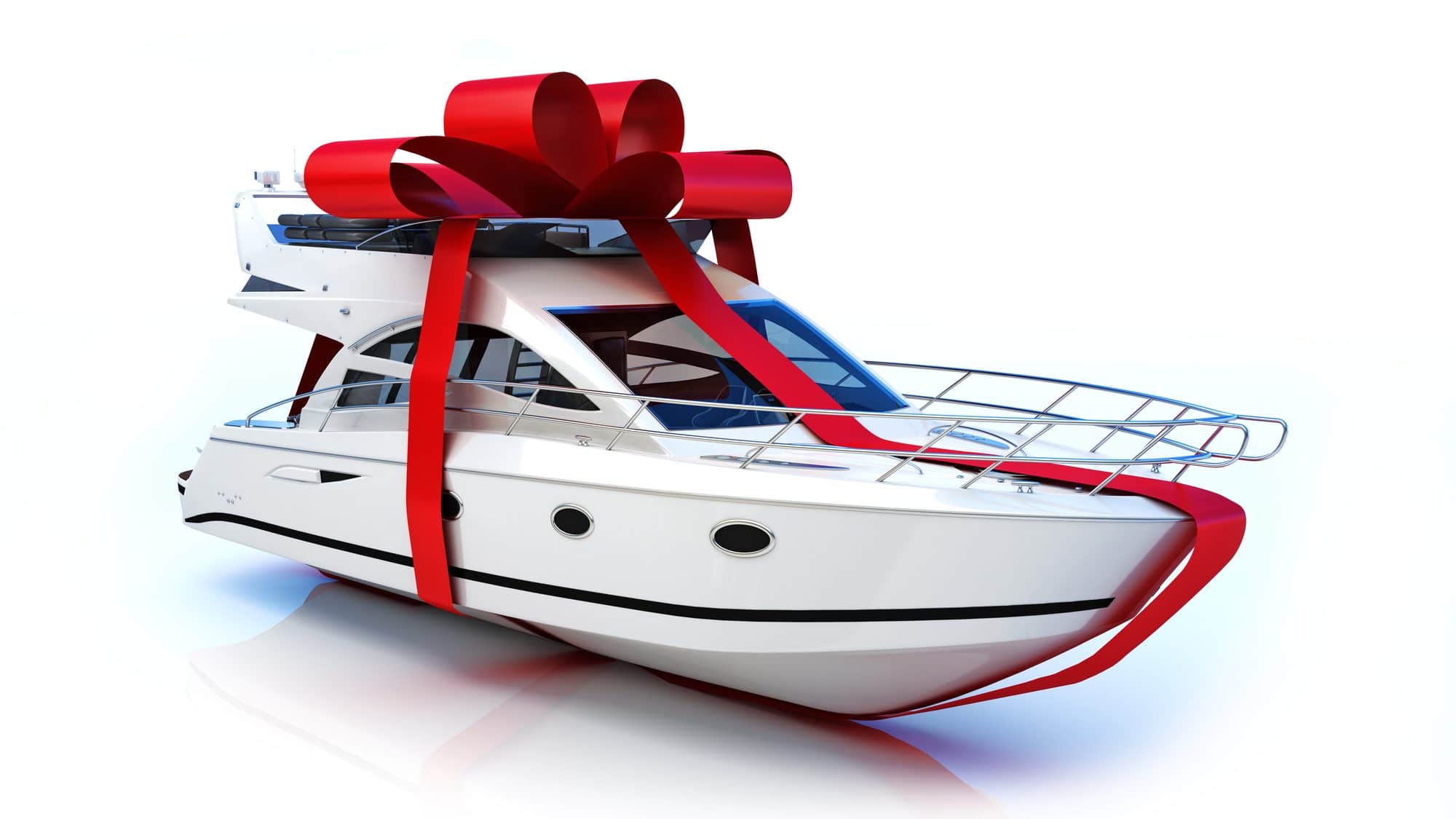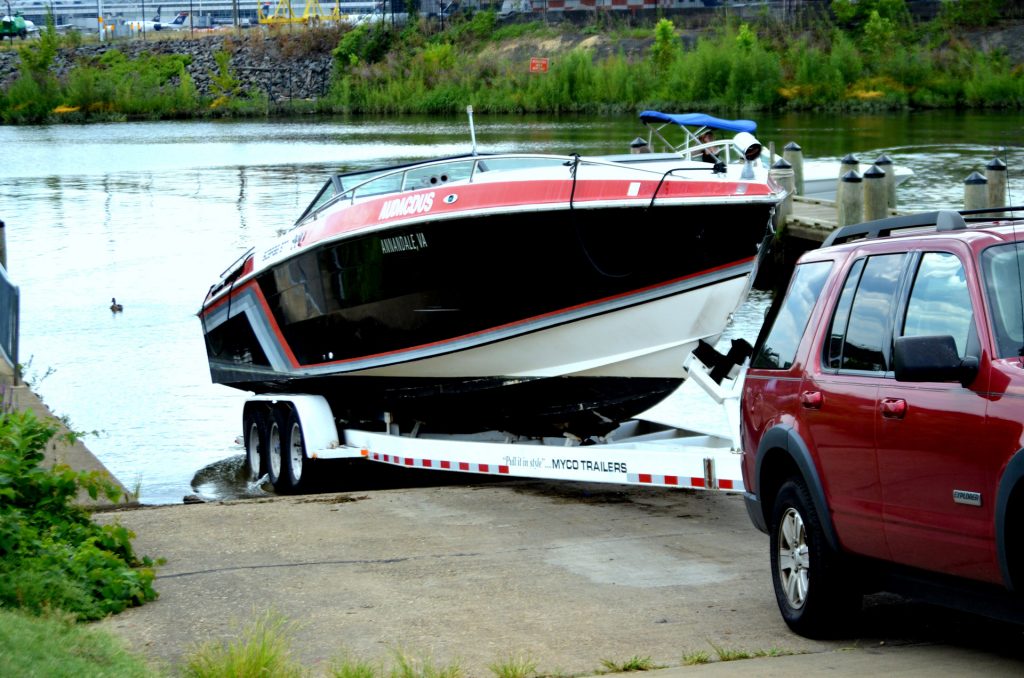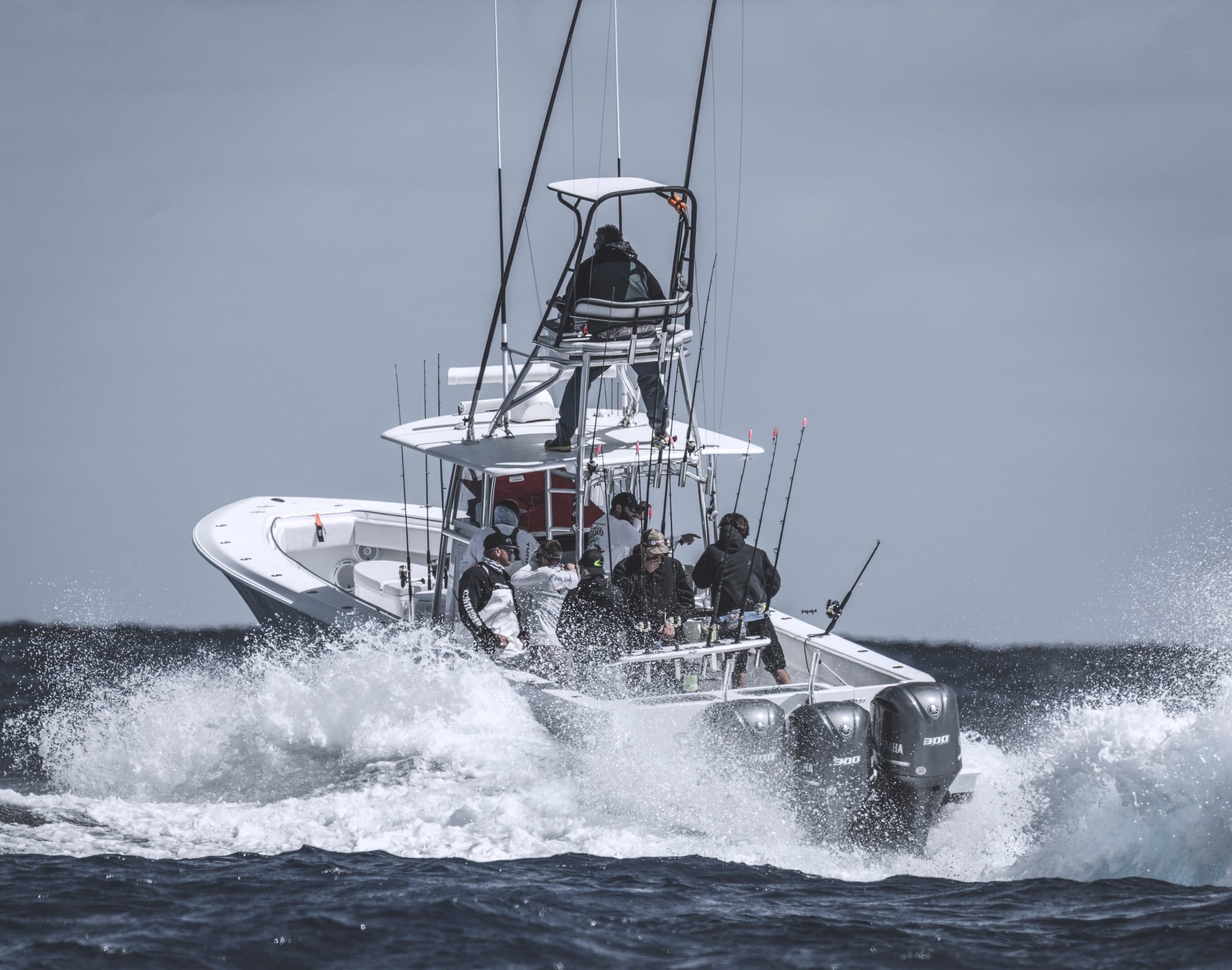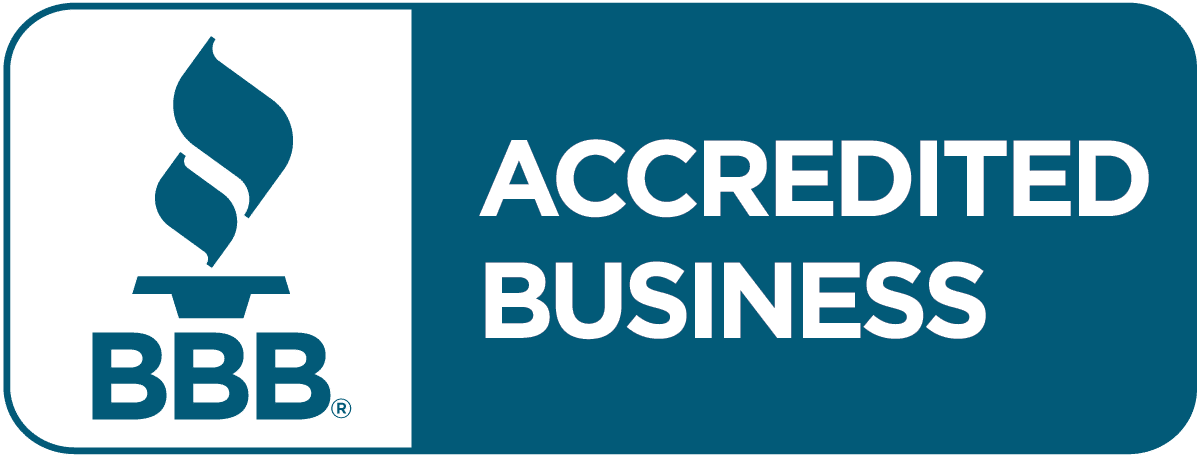
Boat Buying
How to Buy an Out of State Boat
The boat buying process has evolved over the last few years. The internet has provided buyers with the ability to search the entire country for boats. Savvy buyers are using online resources such as Boat Trader, Craigslist, Yachtworld, etc. in order to find the best deal on their next boat. In some cases, that deal is in a different state.
Buying a boat in a different state can be tricky but with the right information it can be relatively painless. Like most things in life, being well informed will keep more money in your pocket and put less stress in your life. In this article we will discuss the details of interstate transactions and how to know when an interstate transaction is a good idea.
The two main reasons that people travel out of state are price and selection. A great price is a good reason to travel however only when the pricing isn’t offset by the cost of travel, shipping and time. Lack of a specific boat availability is another reason people will look to travel out of state. Both of which make sense when you simply can’t get what you want in your own state.
There are things to take into consideration, however. It is important to be clear headed about the purchase and try to not become too emotional. Most boat purchases are made based on a person’s passion. It may be about spending time with friends and family, fishing, travel or something else entirely. Regardless of the motivation, it’s the passion that drives the purchase most of the time. As a result, it’s can be easy to get emotionally vested in the purchase and ignore the details of the transaction.

This question should be the first consideration when purchasing a boat out of state. In today’s buying climate, most shoppers have become experts on pricing for the boat they are considering. It’s not difficult to search the various boat websites to get a very good idea about what an average price should be for a certain type of boat. If a boat is being sold for considerably less than the market suggests, it’s very likely that there is problem with the boat or the integrity of the seller. Even if the seller has a seemingly good reason for the price reduction, it begs one question. “Why else haven’t the hundreds of potential buyers in the seller’s state already purchased the boat?”
To determine the value of the boat it is a good idea to check the NADA guides website (www.nadaguides.com). This site is free and the industry standard for banks to determine how much to lend on a specific boat. A word of caution, however. The NADA guide is a good place to get a feel for the value, but it is not always entirely accurate. In some instances, the values can be higher or lower than the actual market rate. Getting a good sample of similar boats being sold will help to determine what a good price should be.
Contacting the Seller
Once you’ve identified a boat your interested in purchasing, it’s best to contact the seller to determine if it’s worth your time to pursue the purchase. The initial questions should be:
- Is the Boat/Motor/Trailer currently registered (and titled when applicable) in your name?
-If not, you will not be able to guarantee that the seller has the legal right to sell
- Do you owe anything on the Boat/Motor Trailer?
-If the seller owes more than the sales price, are they able to pay the balance down?
- Do you have the service records for maintenance?
-If the maintenance is lacking, it may not be worth the effort to purchase out of state
- Does the Boat/Motor/Trailer all have the same model year? The model years of each item will have a direct impact on the value
-determine the model year of the boat based on the last two digits of the Hull Number
-determine the model year of the trailer based on the 10th digit of the Vehicle ID Number
-Most motor manufacturers don’t list model year on the motor but a quick call to the manufacturer will usually get that info.
In addition to getting this specific information, it is also important to get a feel for the seller. If the seller is combative, deceptive or otherwise unpleasant it may not be worth the effort. Buying a boat out of state will require your time and energy. If the seller is not cooperative it can lead to having the boat sold out from under you, challenges with legal paperwork, or future inconveniences should you need the seller’s help after you’ve purchased the boat. Worse yet, if the seller is deceptive it can lead to challenges with condition of the boat or paperwork when picking up the boat.
Moving Forward
Once you’ve determined to move forward with an out of state purchase, it’s important to keep good communication with the seller. Don’t be reluctant to ask questions, get additional photos and copies of any documents. This will allow you to get your homework done before making the trip out of state. If there’s going to be a problem with the purchase its much better to find out while your home rather than after traveling to another state.
It’s important to set up a realistic time frame for the purchase and get the seller to commit to the time required for the purchase. If the boat is being sold on a “first come, first serve basis”, a buyer could make the trip out of state to pick up a boat only to find that the boat has already been sold. In some cases, it may make sense to give the seller a refundable deposit as a sign of good faith in order to have them hold the boat. This option is relatively risk free when dealing with a reputable dealership however private party deposits should be met with caution.
Prior to picking up the boat, it makes sense to get the Identification numbers for the Boat, Motor and Trailer. These numbers will allow you to verify the model years and can be helpful when researching the registration and title requirements for your state. Before purchasing any out of state boat, you will want to contact your state’s agency that performs registration and title transfer. Having the ID numbers will allow you to prepare the documents necessary for the transfer and let you know the associated costs for tax, title and license. If possible, getting copies of the current owner’s titles and/or registrations can also be helpful in researching the transfer process in your state.
If the seller has a lien on the boat, you will want to get the information on the payoff from their lender. It will be important to verify the payoff amount and that the lien being paid off is for the boat you are purchasing. In addition, you will need to determine the lender’s payoff protocol including required forms and method of payment.
In order to make the payoff you will need an authorization of payoff document. This document will need to be signed by the seller and will stipulate that upon payoff, the released titles will be sent to you and not the seller. For transactions in which the seller owes more than they are selling the boat for, you will want to make sure the seller pays the loan down to your agreed upon selling price prior to making the payoff.
If you are planning on having the boat shipped to your state, you’ll want to research the costs associated with shipping. In some circumstances the cost of shipping may negate the lower selling price. The cost of shipping can vary wildly so it makes sense to shop. Additionally, if you’re flexible with time, a shipper may offer a discount when they’ve made a drop off and need a load for the trip back.
Protecting Yourself
Unless you’re someone who likes to send money to Nigerian Prince’s, it’s a good idea to be cautious when purchasing a boat out of state. If you take the right steps, buying out of state isn’t riskier than buying a boat in your hometown. It’s important to be mindful that you are conducting a business transaction and not get too emotionally attached to the boat.
The most important rule when considering a purchase of this nature is to make sure that you do not send your money to a seller without seeing the boat in person and meeting the seller. It’s shocking how many people will send their money to a prospective seller without seeing the boat in person. This applies to new boats as well. If you discover an issue on a new boat after purchase it may not be something covered under warranty.
A seller may request that you buy the boat without seeing it in person due to time constraints or based on the idea that there are many other prospective buyers. This does not necessarily mean that the seller is a con artist, but it is not worth the risk. It’s not the end of the world if you lose out a boat purchase, but it is catastrophically bad if you send someone thousands of your dollars to find out that the boat doesn’t even exist.
Having an inspection or survey performed is also a good idea when available. It will require the seller to coordinate with the person performing the inspection but if they are agreeable, it is recommended. In a local transaction it’s a good idea, but an out of state transaction it’s doubly helpful in that it may save against a traveling to another state only to reject a boat based on condition.
Picking Up the Boat

The best part of the boat purchase is getting to finally pick up the boat. By that time, you will have done your homework and coordinated the purchase details with the seller. Since there are several items that need to be addressed regarding transportation, title, and payment It makes sense to double check these items:
Transportation – Not all insurance companies cover shipping or transportation. Verifying with your insurance carrier can save future headaches in the event of a claim. You’ll also want to make sure your tow vehicle is equipped with the proper hitch, ball and electrical connection. Additionally, it’s important to have the proper paperwork for the states you’re traveling through should you get stopped by law enforcement.
Title/Registration – Making sure that you have the required documents for the seller to sign will save frustration once you get home. It’s likely that you will need to have Law Enforcement Officer or State Agency Representative verify the ID Number’s once you get home. When possible, have the seller sign a power of attorney for the boat, motor and trailer. This will help if you need to make any corrections to the paperwork when you get home. The Power of Attorney forms are specific to the transaction and only pertain to the sale.
Payment – Once you have inspected the boat and documents it will be time to pay the seller. The best way to pay is via a personal check or wire transfer. Some sellers will request cash or cashier’s check which is understandable. Paying in cash will prohibit you form being able to document the payment beyond the bill of sale. Cashier’s checks are fine, although if the check gets lost it can take a financial institution up to 90 days to credit the amount back to your account. The wire transfer is optimum in that it provides a track record for the payment and the seller does not have a hold on the funds waiting to clear.
If you are financing the boat, request to have your lender wait to transfer funds after you have seen the boat in person and met the seller. They should be able to wire the seller the same day that you are there.
If there is a payoff on the boat, always make sure that you (or your lender) are paying off the boat directly and an Authorization for Payoff form is on file with the bank. This ensures that the lien release/titles are sent to you (or your lender) directly.
The Best Part of Buying a Boat Out of State
The best part of buying a boat is getting out on the water with your new purchase. It may take a bit more time but getting the right deal on the right boat is always the goal. The out of state boat buying process can be challenging but being diligent and following these steps will make sure that you can focus on the enjoyment of boat ownership once you get home. Most people have worked hard to get to the point where they can purchase the boat of their dreams. Spending a little extra effort to make sure that the boat is all that you expect will guarantee that that dream does not turn into a nightmare.
Frequently Asked Questions
It can be considered a primary residence but usually will not qualify for financing based on the full time status.
Ultimately, you will want to verify it with your Tax Professional. However, if the boat has a head, galley and area to sleep, it, should qualify for the deduction.
It will depend on the laws of the state. Some states will require tax on a used boat if it is purchased from a dealer but not if it is purchased from a private individual. You will want to verify with your state’s agency to determine if you have a tax liability.
The laws regarding private boat sales vary form state to state. You will need to contact your state’s agency that governs sales and use tax.
At SeaDream, you are able to buy from a private seller in addition to dealers, brokers and auctions. There are no penalties for private party transactions and the rates and terms are the same as purchasing from a dealer.
Other Articles by Thomas Schumacher
Leave a Reply
You must be logged in to post a comment.







It’s interesting how boats’ prices can change from one state to another. My uncle told me that he would like to buy a boat once he retires so that he can spend time with his loved ones. I will recommend him to compare prices so that he can choose the best deal.
You made a good point that I should look for the maintenance records when buying a used boat. I’ve been wanting to go boating on a lake near my vacation house but have always been bust at work that I never found the time to buy one. Perhaps going for a used boat as my first purchase would be wise so it doesn’t each too much into my savings.
You made a good point that tax laws can differ from state to state so that’s important to consider first when finding a boat dealer. One of the things I’d like to be able to do someday is take my kids to fishing trips in order to have something cool to bond over. Having my own boat would surely help in making such trips easier to arrange.